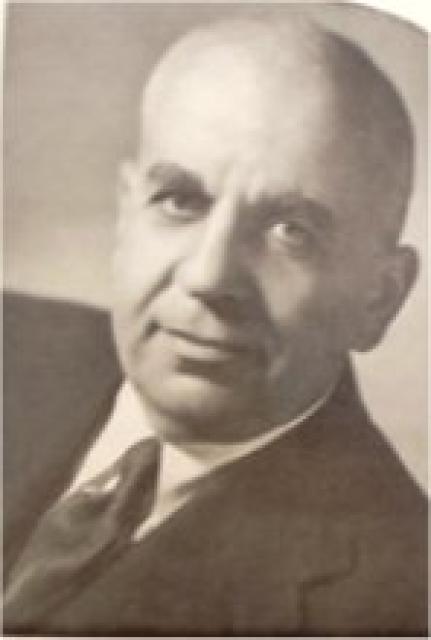Michael Alderton (essarem) notes that the above image accompanies the following January 1, 1950 Hong Kong newspaper article:
PHOTO. People In The News. Link With Sun Yat-sen. The man who stood by Dr Sun Yat-sen as protector in the early days of the Chinese revolution, when enemies from all over the country plotted his assassination, is back in Hong Kong again for a short visit. He is General Maurice Cohen, former aide-de-camp to the Father of the Revolution. One of the most colourful westerners ever to come to China, the General’s association with the Kuomintang stretches back more than 40 years. He is respected and admired by the leaders of Chinese Governmental Society in whose midst he moved freely, with access to the highest Chinese quarters. Now retired from active life, General Cohen resides in Montreal where he is writing his memoirs, which should provide fascinating reading for people interested in the China story. When I visited the General at the Hongkong Hotel for an interview, he expressed unwillingness to be drawn into the contemporary political confusion in China. He merely said that, as a tested friend of the Chinese people, he deplored the country’s internecine war. General Cohen has been the subject of many articles and stories in British and American magazines. Innumerable incidents touching on his career give piquancy to a colourful life.
General Cohen had flown into Hong Kong from New York on December 29, 1949, and the Hong Kong press announced his arrival in the following article:
Personalia. General Maurice A. Cohen, onetime bodyguard of the late Dr Sun Yat-sen, has returned to Hongkong for a brief stay. Gen. Cohen resided in Hongkong for some years before the war, and was interned in Stanley Camp during the Japanese occupation.
The Hong Kong press noted at this time that:
General Cohen is at present private secretary to General Wu Teh-chen, Nationalist Minister without portfolio.
In a newspaper article of May 20, 1950, it was further reported that:
General Wu Te-chen In Hongkong. Former Deputy Prime Minister of China, General Wu Te-chen, arrived at Kai Tak Airport yesterday from Manila on his way back to Taipeh after a month’s tour of Korea, Japan and the Philippines. General Wu was met at the airport by General Maurice Cohen. General Cohen prevented General Wu from talking to the Press, despite the latter’s apparent willingness to answer questions, by hustling him into the airline company’s waiting coach.
Australian journalist Jim Macdougall (1903-1995) describes his Hong Kong meeting with General Cohen at this time in the following colourful terms:
The Gripps Room at the Hongkong Hotel is the spy spot of the East. That’s where most of the plotting and eavesdropping is done. It is also the place where I met a fabulous character of the Orient, a now aged and rugged Canadian from London’s East End, General ‘Two-Gun’ Morris Cohen, who went out to China earlier this century in search of adventure. He got it in full measure. He became aide-de-camp and bodyguard to Sun Yat-sen, founder of the Chinese Republic.
Canadian journalist Gerald Clark (1918-2005) added to the picture:
By late 1949 the last of the Kuomintang rulers fled to the island of Formosa. The Chinese mainland was closed to all travelers. But Hong Kong, a British colony, was open. Morris flew to Hong Kong and stayed at the Hong Kong Hotel. General Morris A. Cohen held court. He sat in the same corner of the lobby while government officials or business people – British, Chinese, European – sought him out, or responded to his messages.
At the end of his 6 month long stay, General Cohen flew out of Hong Kong on July 21, 1950.
The image of General M.A. ‘Two-Gun’ Cohen shown at the top of this page is a studio portrait taken by Montreal-based photojournalist Basil Zarov, which served as the General’s ‘publicity shot’ at this time of biopic planning and preparation. See also:
1954 - Drage, Charles, "Two-Gun Cohen", Jonathan Cape, London, March 1954 | Gwulo
